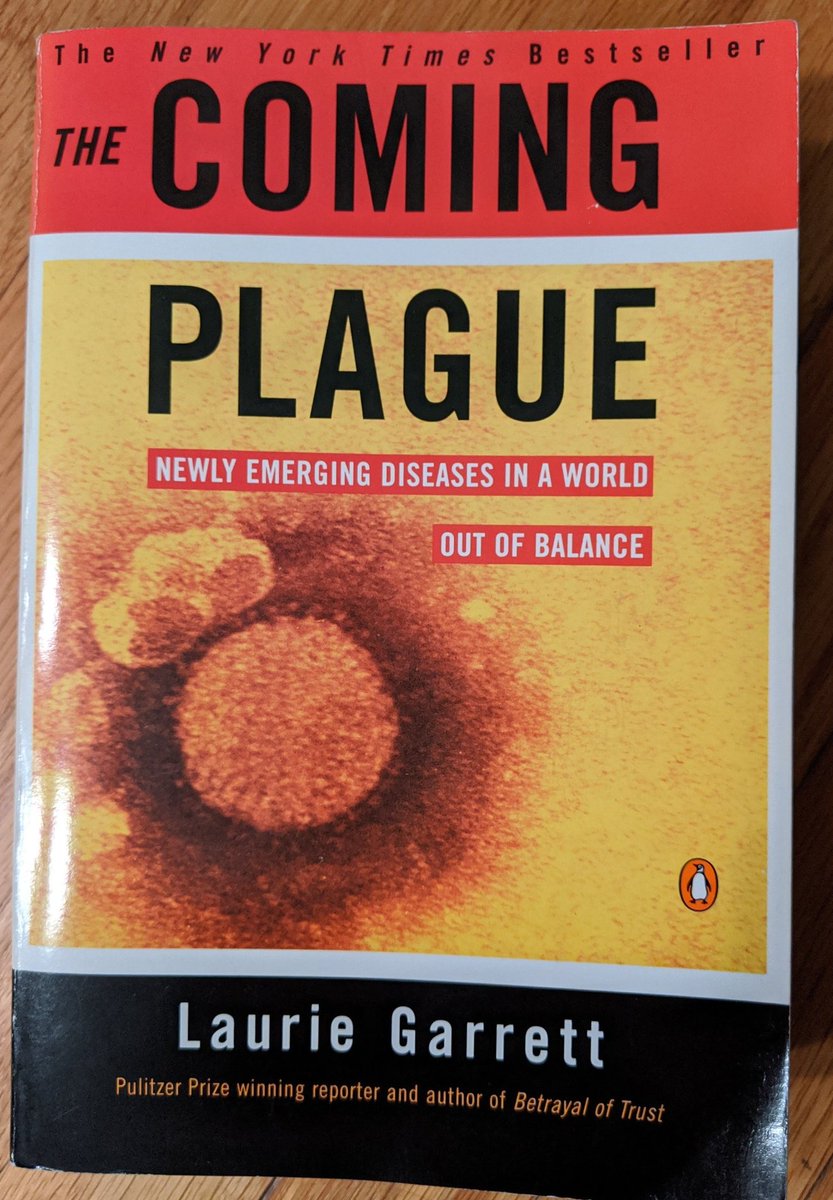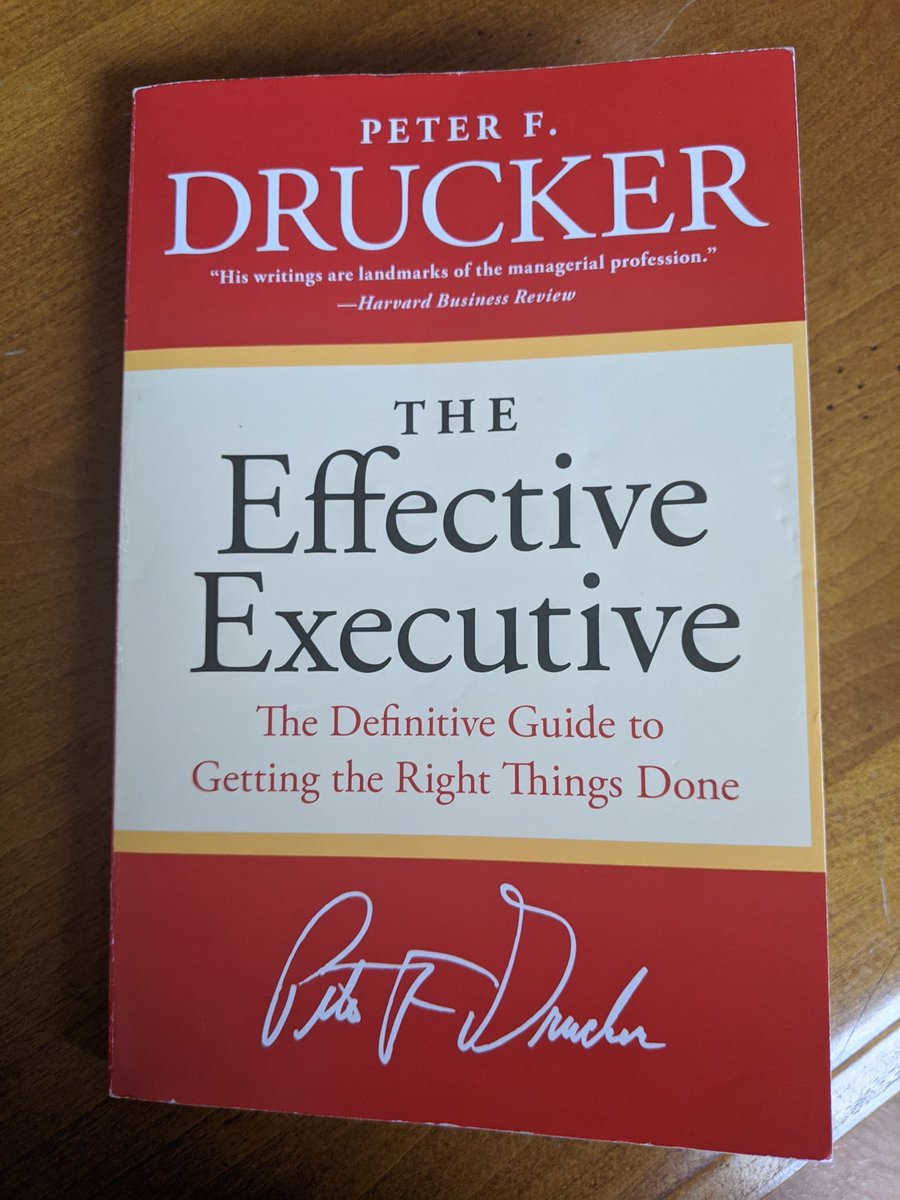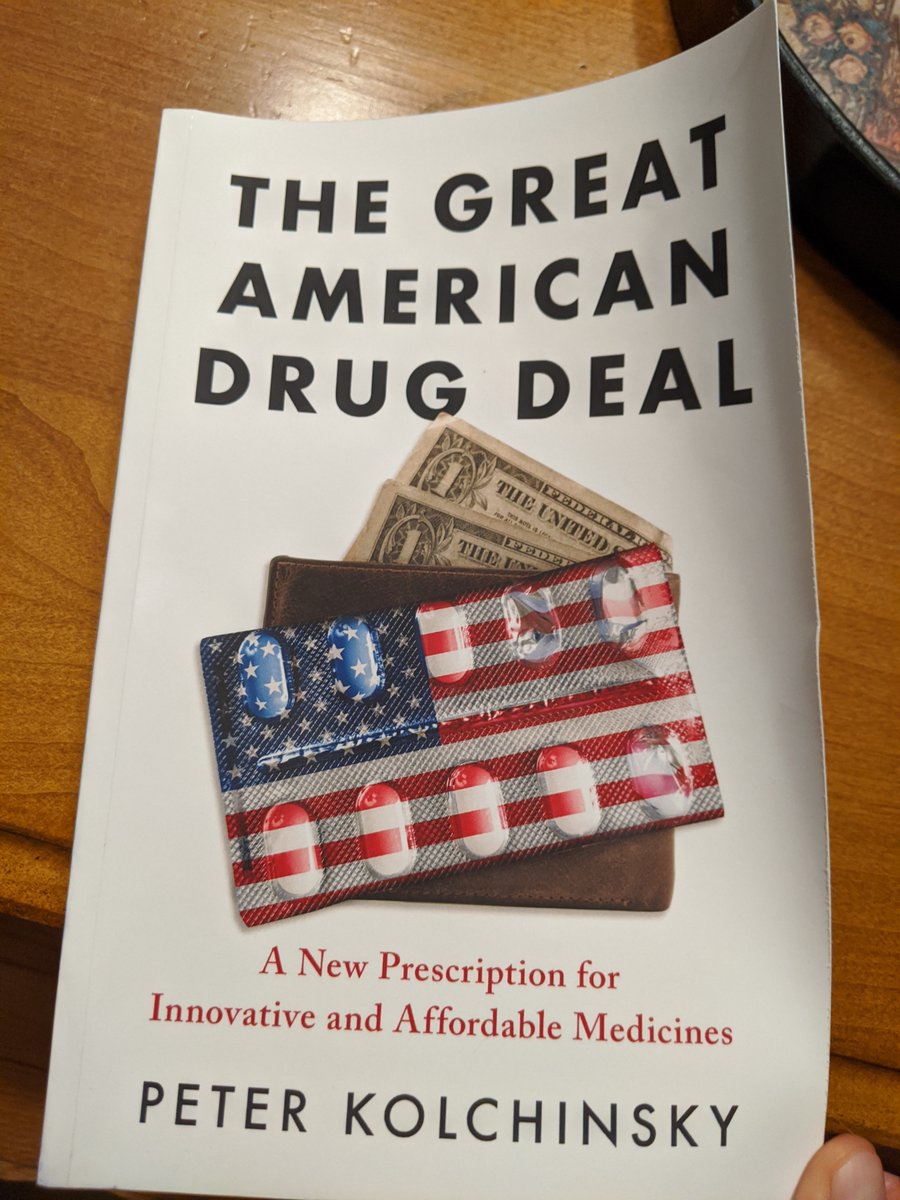#ShelterInPlace #NonFiction #BookRecommendations !
Sharing takeaways and recs from recent reading blocks.
Who would I recommend this to?
👑 Everyone
🏆 Any interest in topic
🎖️ You often read on this topic
🍅 Nah
Michelin, not Amazon, style ratings = any non-🍅 is a good book.
Sharing takeaways and recs from recent reading blocks.
Who would I recommend this to?
👑 Everyone
🏆 Any interest in topic
🎖️ You often read on this topic
🍅 Nah
Michelin, not Amazon, style ratings = any non-🍅 is a good book.
🏆
Keynes Hayek by @NWapshott
Topic: 🌍💰
Layperson's history of JM Keynes' inventing #macroeconomics, and opposition by ppl who fear inflation > unemployment.
• #Stimulus packages are <100y old
• They seem like magic, but aren't
• Fiscal policy goes beyond red vs blue
Keynes Hayek by @NWapshott
Topic: 🌍💰
Layperson's history of JM Keynes' inventing #macroeconomics, and opposition by ppl who fear inflation > unemployment.
• #Stimulus packages are <100y old
• They seem like magic, but aren't
• Fiscal policy goes beyond red vs blue

🎖️
The Snowball by @aliceschroeder
Topic 💰📈
Great bio, but #Buffett's life is so consistent most ppl won't need 700 pages of it.
• "Take a simple idea, and take it very seriously"
• Learned early he loves making money, never stopped
• Wife surely made him a better human
The Snowball by @aliceschroeder
Topic 💰📈
Great bio, but #Buffett's life is so consistent most ppl won't need 700 pages of it.
• "Take a simple idea, and take it very seriously"
• Learned early he loves making money, never stopped
• Wife surely made him a better human

🍅
[See pic] by John Bogle
Topic 💰📈
Bogle invented index funds, tells you why they're great. He's not wrong, but this could have been 1-2 pages.
• Most people can't beat average returns
• Mutual funds' fees pull them below the average
• Embrace the average, at 0.01% fees
[See pic] by John Bogle
Topic 💰📈
Bogle invented index funds, tells you why they're great. He's not wrong, but this could have been 1-2 pages.
• Most people can't beat average returns
• Mutual funds' fees pull them below the average
• Embrace the average, at 0.01% fees

🎖️
[See pic] by James Montier
Topic 🧠💰📈
Beat your #Evolutionary #Psychology to invest better. Maybe redundant if you know #ValueInvesting and #BehavioralEconomics.
• Make plans far removed from scenarios they cover
• Stick to plans!
• Post-mortem on process, not outcomes
[See pic] by James Montier
Topic 🧠💰📈
Beat your #Evolutionary #Psychology to invest better. Maybe redundant if you know #ValueInvesting and #BehavioralEconomics.
• Make plans far removed from scenarios they cover
• Stick to plans!
• Post-mortem on process, not outcomes

🎖️
Biohazard by Ken Alibek
Topic 🦠💣
Memoir of running #Soviet #ColdWar #biioweapons programs. Politics, history, and gory details of #pathogens.
• VERY active programs, despite treaties
• Paranoid politics ruled everything
• Viruses/bacteria are engineerable, but not easily
Biohazard by Ken Alibek
Topic 🦠💣
Memoir of running #Soviet #ColdWar #biioweapons programs. Politics, history, and gory details of #pathogens.
• VERY active programs, despite treaties
• Paranoid politics ruled everything
• Viruses/bacteria are engineerable, but not easily

👹
Plague Time by Paul Ewald
Topic 🦠🏥
Torn on this one. Message is important, but author's indignant tone is frustrating...
• Not all #InfectiousDisease is acute.
• Many 🦠 are linked to #ChronicDisease, eg schizophrenia and cancer.
• We stopped studying this in the 70s.
Plague Time by Paul Ewald
Topic 🦠🏥
Torn on this one. Message is important, but author's indignant tone is frustrating...
• Not all #InfectiousDisease is acute.
• Many 🦠 are linked to #ChronicDisease, eg schizophrenia and cancer.
• We stopped studying this in the 70s.

👑
Parable of the Sower by Octavia Butler
A special book, to mark the date: Eerily prescient tale of a girl's decision to take control, in a 2025 of 🌎 warming, indifferent 👮, racism, lawlessness and societal decline. Shape yourself, to shape Destiny and populate the stars.
Parable of the Sower by Octavia Butler
A special book, to mark the date: Eerily prescient tale of a girl's decision to take control, in a 2025 of 🌎 warming, indifferent 👮, racism, lawlessness and societal decline. Shape yourself, to shape Destiny and populate the stars.

Written in 1993, it feels like turning on the news today. Heck, the sequel has a white supremacist campaigning for president to "Make America Great Again"...
The writing is exquisite for any genre, and the message in the protagonist's personal religion is profound and important.
The writing is exquisite for any genre, and the message in the protagonist's personal religion is profound and important.
🎖️
The Coming Plague by @Laurie_Garrett
Topic 🌍🦠
A (scholarly and nuanced) beast! 600 pages of deadly epidemics and the scientists who fought them.
• New microbes appear 'out of nowhere'
• Environmental and demographic shifts contribute
• Pandemics spread thru early denial
The Coming Plague by @Laurie_Garrett
Topic 🌍🦠
A (scholarly and nuanced) beast! 600 pages of deadly epidemics and the scientists who fought them.
• New microbes appear 'out of nowhere'
• Environmental and demographic shifts contribute
• Pandemics spread thru early denial

🙇🏼 @drperszyk for suggesting '📖 blocks' of 3-4 📚 to better chart a subject.
Main #InfectiousDisease takeaway:
I'm surprised that I'm surprised by the artificial divide between infectious and other disease/biology.
Next 📗 would be on #Microbiome, but field still too nascent.
Main #InfectiousDisease takeaway:
I'm surprised that I'm surprised by the artificial divide between infectious and other disease/biology.
Next 📗 would be on #Microbiome, but field still too nascent.
🎖️
The Effective Executive by Peter Drucker
Topic 👨💼
In a genre of 1-page ideas backed by 199 pages of anecdotes, this one is actually good. Even so, Pareto readers will prefer Drucker's essay summary: hbr.org/2004/06/what-m…, which I will let substitute for my summary bullets
The Effective Executive by Peter Drucker
Topic 👨💼
In a genre of 1-page ideas backed by 199 pages of anecdotes, this one is actually good. Even so, Pareto readers will prefer Drucker's essay summary: hbr.org/2004/06/what-m…, which I will let substitute for my summary bullets

👑
Inner Game of Tennis by @the_innergame
Topic 🧘(🎾)
Bits about #Tennis, but really a treatise on #Consciousness, #Focus and letting go.
• Conscious self-talk is a barrier to execution
• Focus quiets consciousness, needs practice
• Focus in tennis(/xyz), to improve focus
Inner Game of Tennis by @the_innergame
Topic 🧘(🎾)
Bits about #Tennis, but really a treatise on #Consciousness, #Focus and letting go.
• Conscious self-talk is a barrier to execution
• Focus quiets consciousness, needs practice
• Focus in tennis(/xyz), to improve focus

🏆
Superforecasting by @PTetlock
Topic 🔮
Prediction best practices, backed both by long 👨🔬 career and @IARPAnews competition wins.
• Base rates, then unique case
• "Probably" ➡️ "67%"
• New info ➡️ Frequent but minor updates
• Forecasting works mid (6mo) not long (5y) term
Superforecasting by @PTetlock
Topic 🔮
Prediction best practices, backed both by long 👨🔬 career and @IARPAnews competition wins.
• Base rates, then unique case
• "Probably" ➡️ "67%"
• New info ➡️ Frequent but minor updates
• Forecasting works mid (6mo) not long (5y) term

🏆
[...] Leadership Mindtraps by @jgberger
Topic 🧠🪤
Nice summary of some "True Simple Things". High usefulness/page, several actionable methods.
• See >1 story describing each situation
• Dodge need for control by looking to enable
• Who you "are" now is not permanent
[...] Leadership Mindtraps by @jgberger
Topic 🧠🪤
Nice summary of some "True Simple Things". High usefulness/page, several actionable methods.
• See >1 story describing each situation
• Dodge need for control by looking to enable
• Who you "are" now is not permanent

Summary of "thought traps" reading block:
• Biz books ARE full of obvious advice, but SOMETIMES that's needed in the middle of doing hard things
• As evidenced by... life, putting Simple Truths into practice is hard
• Bar for quality is very high, quantity is actively harmful
• Biz books ARE full of obvious advice, but SOMETIMES that's needed in the middle of doing hard things
• As evidenced by... life, putting Simple Truths into practice is hard
• Bar for quality is very high, quantity is actively harmful
I'm also realizing that I should have chosen different icons for my ratings, since they're about whom I'd recommend to rather than quality.
Some of these books are excellent but quite specific, thus get a🎖️. Alas, hopefully nobody gets offended.
Some of these books are excellent but quite specific, thus get a🎖️. Alas, hopefully nobody gets offended.
🎖️
[See pic] by @PeterKolchinsky
Topic 🏥💵
Great explanation of dynamics between healthcare costs, biotech, and societal benefit.
• $$$ drugs later grow our pool of cheap generics
• Reported prices aren't real, insurance gets big discounts
• Lower prices can't fix co-pays
[See pic] by @PeterKolchinsky
Topic 🏥💵
Great explanation of dynamics between healthcare costs, biotech, and societal benefit.
• $$$ drugs later grow our pool of cheap generics
• Reported prices aren't real, insurance gets big discounts
• Lower prices can't fix co-pays

@PeterKolchinsky 🏆
Malignant by @VPrasadMDMPH
Topic 🦀🏥
Blew my mind re. how cancer drugs get approved. Hint: it's a mess.
• Surrogate endpoints (eg tumor shrinks) over(ab)used
• Control arms not always std of care, esp post-protocol
• Economics = Ph3 after failed Ph2 can have positive💲EV
Malignant by @VPrasadMDMPH
Topic 🦀🏥
Blew my mind re. how cancer drugs get approved. Hint: it's a mess.
• Surrogate endpoints (eg tumor shrinks) over(ab)used
• Control arms not always std of care, esp post-protocol
• Economics = Ph3 after failed Ph2 can have positive💲EV

A clarification: the only reason this didn't get a 'recommend to anyone curious about topic' rating is the word count. Quality is unparalleled.
👑
Bottle of Lies by @KatherineEban
Topic 💊☠️
Hard to believe this is real; Theranos-level fraud for generic drugs we all take.
• Generics not all equal, or safe
• FDA often can't inspect non-US suppliers, but we still get their drugs
• Jugaad = creatively removing obstacles
Bottle of Lies by @KatherineEban
Topic 💊☠️
Hard to believe this is real; Theranos-level fraud for generic drugs we all take.
• Generics not all equal, or safe
• FDA often can't inspect non-US suppliers, but we still get their drugs
• Jugaad = creatively removing obstacles
Drug/#healthcare block lessons:
• I'd assumed that FDA approval = infallible ground truth on safety and efficacy, but FDA is described as understaffed and sometimes under political pressure at odds with the core mission (even before 2016). Still absolutely crucial organization.
• I'd assumed that FDA approval = infallible ground truth on safety and efficacy, but FDA is described as understaffed and sometimes under political pressure at odds with the core mission (even before 2016). Still absolutely crucial organization.
• A lot of issues in US #Healthcare costs are from conflicts between utilitarian analysis (=don't pay for $$$ drug that's marginally effective) and the emotional narratives ("Senator X wants cancer patients to die!"), from Congress to your family doctor.
• Advertising works...
• Advertising works...
• Does not seem that most #biopharma act on pure greed, maybe slightly less so than other S&P500. But do act to profit within incentive structures they're subject to.
Tension from ppl feeling entitled to drug dev and #healthcare, but it being "responsibility" of private corps.
Tension from ppl feeling entitled to drug dev and #healthcare, but it being "responsibility" of private corps.
Two days after I posted this I see the following ad 🤔
Even though I work on making non-#generic drugs, they're not a bad thing! As long as they're actually equivalent...
Even though I work on making non-#generic drugs, they're not a bad thing! As long as they're actually equivalent...

• • •
Missing some Tweet in this thread? You can try to
force a refresh






